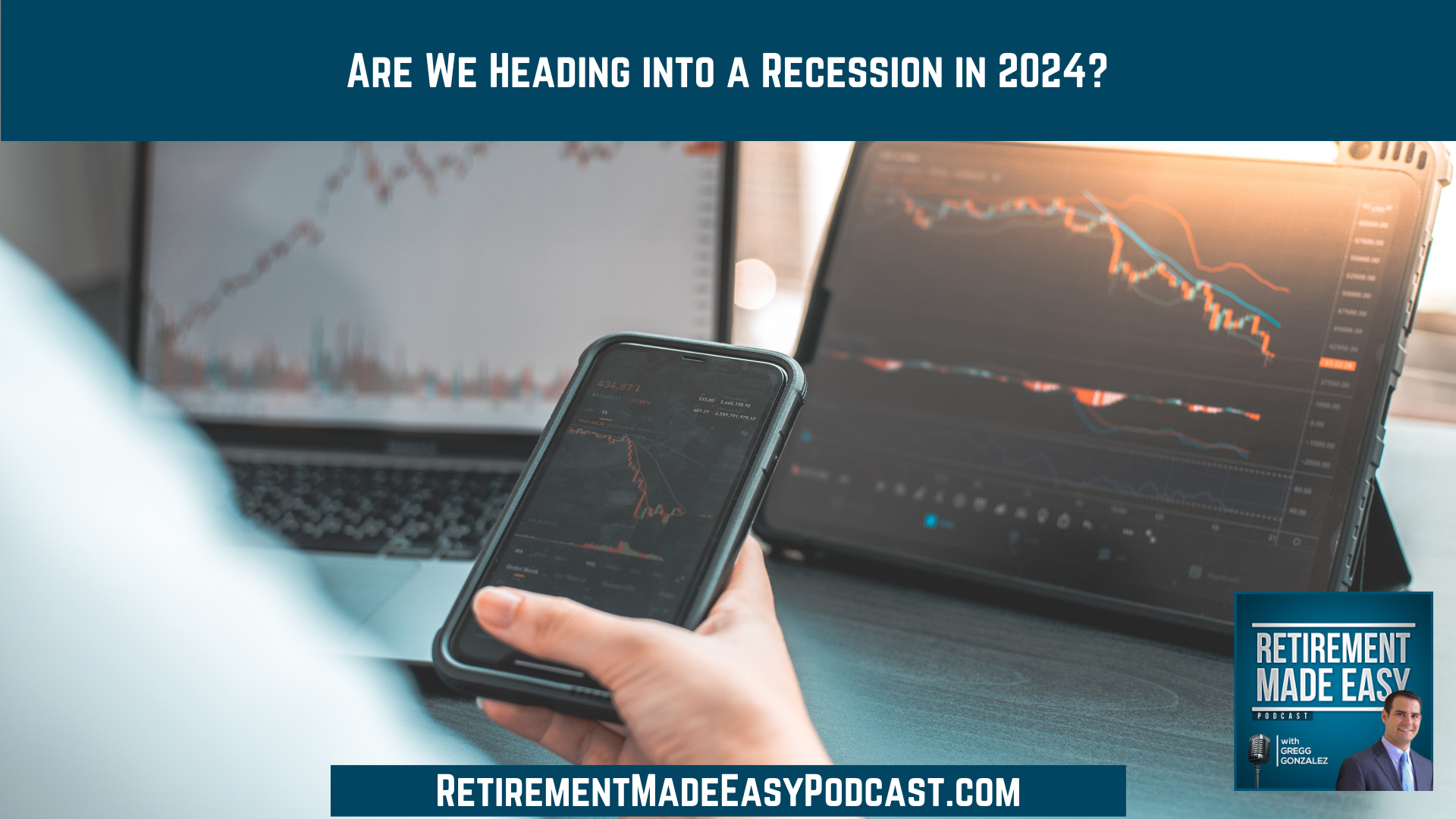
I’ve received numerous questions all running along the same theme: Are we heading into a recession? What would it mean for the stock market moving forward? How will it impact your retirement? Many of you are concerned that we’ll be entering a recession in 2024. In this episode of the Retirement Made Easy podcast, I’ll cover what a recession is, the trends we’re seeing, and what the stock market teaches us about investing. Don’t miss it!
You will want to hear this episode if you are interested in…
- [0:43] Check out RetirementMadeEasyPodcast.com!
- [3:02] Are we on the verge of a recession?
- [6:36] What the stock market teaches us about investing
- [11:34] Contributions toward Roth IRAs and 401ks in 2024
Are we on the verge of a recession?
Let’s start by defining what a recession is. According to the experts, a simple definition is when we see two consecutive quarters of negative growth (GDP) in the economy, it’s a recession. We see people stop consuming/purchasing goods and services. Consumer spending, government spending, investment in capital equipment and housing, and exports minus imports are all factored into the equation.
In the 3rd quarter of 2023, the economy grew 4.9%. We didn’t see negative growth. We don’t know what the 4th quarter of 2023 will bring or the 1st quarter of 2024 but if they’re both negative, we may officially be in a recession. But as of right now, we don’t see evidence to say a recession is coming.
How does a recession impact the stock market?
People think that if we’re in a recession, the stock market will shrink by the same amount. Many studies show that in the months leading to a recession, the stock market does worse than it does once you’re in a recession. Coming out of a recession, the economy and stock market perform best. I’m not making any predictions here, but I think the experts who are saying we’re heading for a recession may be missing the mark.
What the stock market teaches us about investing
If you look at the S&P 500 from 10/27/2023—11/22/2023, the market has gone up 10.9%. But in three and a half weeks, it could be down again. We can’t time the stock market because it bounces quickly. One of the biggest mistakes I see repeatedly is people trying to time the market. People panic and make poor decisions, making temporary paper losses permanent.
We have clients that we work with that have successful plans because they’re operating off of a long-term plan. Their decisions aren’t impacted by short-term noise (like government shutdowns, the election, strikes, and so much more). There will always be something. You need to remain optimistic and have a forward-looking plan personalized to your retirement vision.
Contributions toward Roth IRAs and 401ks in 2024
In 2024, anyone over the age of 50 can contribute $8,000 to a Roth IRA ($500 higher than 2023). In 2024, you can contribute $30,500 to a Roth 401k ($500 higher than 2023). Roth IRAs are income-based so if you make too much money, you can’t contribute to a Roth IRA. But if you have access to a Roth 401k through an employer, there are no income restrictions.
Most employee retirement plans fall under ERISA laws (Employee Retirement Income Security Act). Roth IRAs aren’t offered through employees and aren’t covered under ERISA, so the “rules” are completely different.
I have some clients still saving for retirement who aren’t allowed to contribute the maximum to their 401k. Why? Because they’re considered “highly compensated” and are restricted. I have one client who makes just $2,000 above the threshold!
Listen to hear why I don’t think the income restrictions make any sense!
Resources & People Mentioned
Connect With Gregg Gonzalez
- Email at: Gregg@RetireSTL.com
- Podcast: https://RetirementMadeEasyPodcast.com
- Website: https://StLouisFinancialAdvisor.com
- Follow Gregg on LinkedIn
- Follow Gregg on Facebook
- Follow Gregg on YouTube



